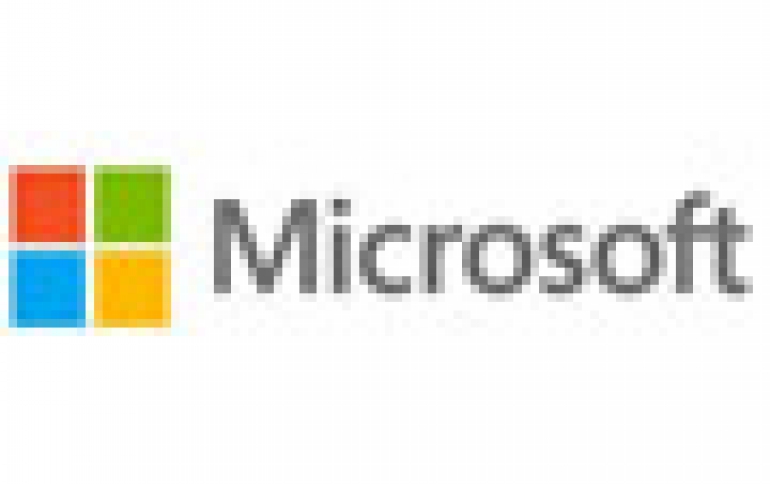
EU Fines Microsoft $731 million For Breaking Browser Choice Commitments
The European Commission (EC) has imposed a €561 million ($731 million) fine on Microsoft for failing to comply with its commitments to offer users a browser choice screen enabling them to easily choose their preferred web browser.
In 2009, Microsoft made a commitment to ensure consumers had a choice of browser, rather than defaulting to Microsoft's Internet Explorer. In today's decision, the EC finds that Microsoft failed to roll out the browser choice screen with its Windows 7 Service Pack 1 from May 2011 until July 2012. Microsoft has said the failure was the result of a technical error and that procedures have since been tightened. EC said that 15 million Windows users in the EU therefore did not see the choice screen during this period. Microsoft has acknowledged that the choice screen was not displayed during that time.
Commission Vice President in charge of competition policy Joaquin Almunia said: "In 2009, we closed our investigation about a suspected abuse of dominant position by Microsoft due to the tying of Internet Explorer to Windows by accepting commitments offered by the company. Legally binding commitments reached in antitrust decisions play a very important role in our enforcement policy because they allow for rapid solutions to competition problems. Of course, such decisions require strict compliance. A failure to comply is a very serious infringement that must be sanctioned accordingly."
"We take full responsibility for the technical error that caused this problem and have apologized for it," said Microsoft. "We provided the Commission with a complete and candid assessment of the situation, and we have taken steps to strengthen our software development and other processes to help avoid this mistake - or anything similar - in the future."
In December 2009, the EC had made legally binding on Microsoft commitments offered by the US software company to address competition concerns related to the tying of Microsoft's web browser, Internet Explorer, to its dominant client PC operating system Windows. Specifically, Microsoft committed to make available for five years (i.e. until 2014) in the European Economic Area a "choice screen" enabling users of the Windows operating system to choose in an informed and unbiased manner which web browser(s) they wanted to install in addition to, or instead of, Microsoft's web browser.
The choice screen was provided as of March 2010 to European Windows users who have Internet Explorer set as their default web browser. When the failure to comply was detected and documented in July 2012, the EC opened an investigation and before taking a decision notified to Microsoft its formal objections in October 2012.
This is the first time that the EC has had to fine a company for non-compliance with a commitments decision. In the calculation of the fine the European antitrust regulators took into account the gravity and duration of the infringement, the need to ensure a deterrent effect of the fine and, as a mitigating circumstance, the fact that Microsoft has cooperated with them during the investigation on the matter.
Commission Vice President in charge of competition policy Joaquin Almunia said: "In 2009, we closed our investigation about a suspected abuse of dominant position by Microsoft due to the tying of Internet Explorer to Windows by accepting commitments offered by the company. Legally binding commitments reached in antitrust decisions play a very important role in our enforcement policy because they allow for rapid solutions to competition problems. Of course, such decisions require strict compliance. A failure to comply is a very serious infringement that must be sanctioned accordingly."
"We take full responsibility for the technical error that caused this problem and have apologized for it," said Microsoft. "We provided the Commission with a complete and candid assessment of the situation, and we have taken steps to strengthen our software development and other processes to help avoid this mistake - or anything similar - in the future."
In December 2009, the EC had made legally binding on Microsoft commitments offered by the US software company to address competition concerns related to the tying of Microsoft's web browser, Internet Explorer, to its dominant client PC operating system Windows. Specifically, Microsoft committed to make available for five years (i.e. until 2014) in the European Economic Area a "choice screen" enabling users of the Windows operating system to choose in an informed and unbiased manner which web browser(s) they wanted to install in addition to, or instead of, Microsoft's web browser.
The choice screen was provided as of March 2010 to European Windows users who have Internet Explorer set as their default web browser. When the failure to comply was detected and documented in July 2012, the EC opened an investigation and before taking a decision notified to Microsoft its formal objections in October 2012.
This is the first time that the EC has had to fine a company for non-compliance with a commitments decision. In the calculation of the fine the European antitrust regulators took into account the gravity and duration of the infringement, the need to ensure a deterrent effect of the fine and, as a mitigating circumstance, the fact that Microsoft has cooperated with them during the investigation on the matter.





















